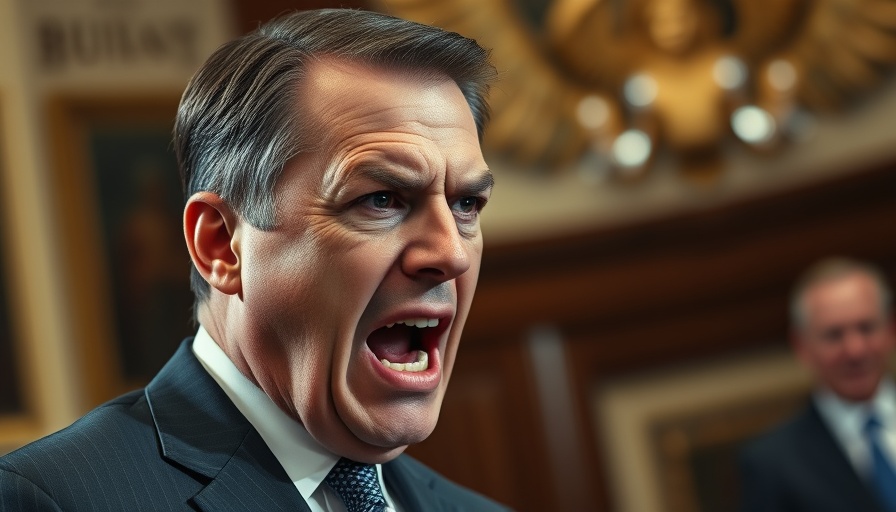
U.S. Steering Away from Democratic Advocacy in Foreign Election Commentary
The recent directive from Secretary of State Marco Rubio to limit U.S. commentary on foreign elections marks a significant shift in American diplomatic strategy. This new policy calls for public statements about foreign elections to focus primarily on congratulating winning candidates, avoiding discussion on the electoral process's fairness or integrity.
Rubio’s memo, disseminated to all diplomatic and consular posts, reinforces an ongoing trend initiated during the Trump administration, which has seen the U.S. drift away from its traditional role as a promoter of democratic values and human rights abroad. By prioritizing diplomatic relations over democracy advocacy, the U.S. government is reshaping its public narrative internationally.
Historical Context: From Advocacy to Silence
Historically, the U.S. has maintained a strong stance against electoral fraud and intimidation globally, often issuing statements condemning unfair practices. For instance, under previous administrations, the State Department openly criticized elections deemed illegitimate, such as those in Belarus and Nicaragua, citing their failures in fairness and transparency. This practice has played a critical role in encouraging democratic movements in various countries while bolstering the United States' moral authority.
The abrupt shift under Rubio signifies a turning point. Previous statements that may have supported democratic movements may be muted as diplomacy takes precedence. Reactions to elections akin to the 2020 Belarus polls, which saw massive public protests against alleged vote rigging, could potentially be diluted under the new rules.
Social Implications: A Diplomatic Tightrope
The move to limit criticism of foreign elections carries ramifications beyond just diplomatic phrasing. Critics warn that this approach risks emboldening authoritarian governments that may misuse electoral processes to legitimize their hold on power without facing international scrutiny. For democracy advocates worldwide, U.S. silence can indicate tacit approval of questionable elections, diminishing their leverage against corrupt regimes.
Furthermore, such a stance may alienate democratic allies who have relied on U.S. support in their political struggles. Countries like Belarus, where election integrity is under constant threat, might perceive the change as the U.S. retreating from its commitments to global democratic principles.
Comparative Analysis: U.S. Position Against Allies and Rivals
In comparing U.S. election commentary with that of other nations, the implications of Rubio’s directive are even more pronounced. Allies in Europe have been vocal in their criticisms of electoral fraud in Belarus and Russia, positioning themselves as defenders of democracy. In contrast, the U.S. may send mixed signals at a time when there is a need for solidarity against authoritarianism.
For instance, the European Union continues to take a strong stance against dubious elections, linking them to broader human rights violations. Meanwhile, unfamiliarity with foreign electoral processes could lead to the U.S. perceiving allies in the fight for democracy as less crucial in the wake of this directive.
The Path Forward: Constructive Diplomacy or Isolation?
As the world watches the U.S. change its foreign policy approach, questions arise about what this means for future diplomatic relations. Is America stepping back from its role as the global torchbearer of democracy, or is this a necessary recalibration of strategy?
Future predictions suggest that the U.S. may pivot towards building partnerships focused more on stability and mutual interests rather than democratic endorsement. The risk, however, is fostering an environment where opportunistic regimes manipulate election processes without facing the scrutiny they previously would have.
Opportunities for Change: The Role of Public Engagement
For citizens observing these changes, engagement is key. Advocating for transparency in foreign elections can be propelled by public discourse and encouraging political pressure on leaders to address human rights violations. Engaging with local organizations that promote democracy can generate awareness and maintain U.S. accountability abroad, even amidst these political shifts.
International public opinion may call for the U.S. to uphold its principles, offering a chance for citizens to unite in advocating for a return to a more vocal stance in favor of democracy and human rights.
Conclusion: Reflections on Responsibility
The implications of Secretary Rubio's directive are not merely bureaucratic; they touch on the very fabric of U.S. identity in global politics. As Americans reflect on the shift away from promoting democratic values, the need for personal and collective responsibility rises. Keeping our leaders accountable to the principles of democracy is essential, ensuring that our voices resonate internationally, reaffirming America's role as a promoter of fundamental human rights.
As discussions about the impact of these policies continue, it will be crucial for citizens to follow developments and advocate for a foreign policy that embraces democracy, holding the U.S. accountable to its ideals. Every engagement shapes the narrative, and the future of international democracy may depend on our actions today.
 Add Row
Add Row  Add
Add 




Write A Comment